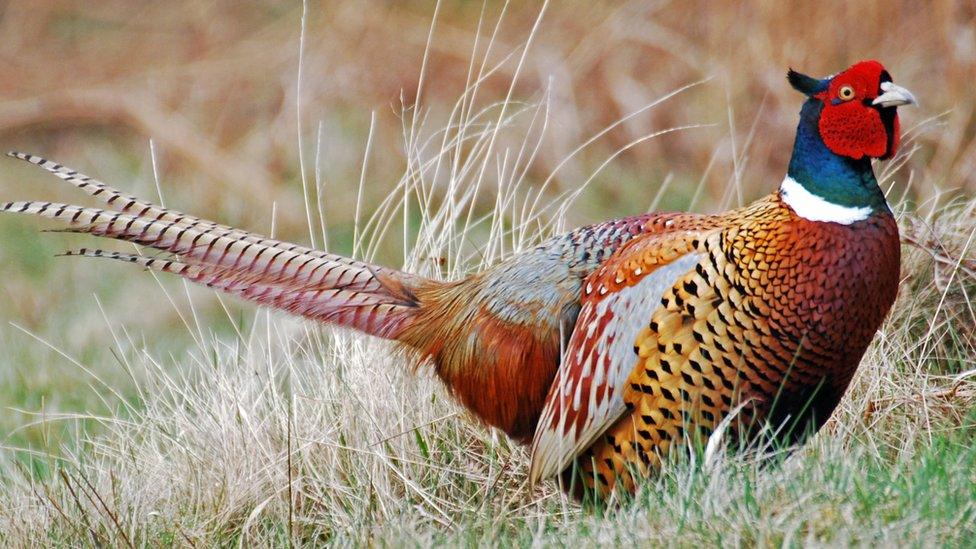Lancashire bird flu: 63,000 birds to be culled
- Published

The presence of bird flu has been confirmed at two farms in Lancashire
About 63,000 birds are due to be culled at a Lancashire farm to prevent the spread of bird flu, which has already been found at two nearby premises.
The decision was made after animal health investigators were unable to rule out the presence of H5N8 avian flu at a third farm in Wyre.
They said a "pro-active culling" would take place of birds including pheasants, partridges and ducks.
The Food Standards Agency said the disease was not a risk to food safety.
Public Health England said the risk to public health from the virus was very low.
'Restrictions in place'
The first outbreak was discovered last week at a farm in Wyre with 10,000 birds, followed by a second case involving a flock of about 1,000 birds.
Defra said the third premises would be cleansed and disinfected, "further reducing the risk that disease can be spread to other birds".
"Our investigations will continue and the restrictions already placed on the sites will remain in force until cleansing and disinfection is finished and the investigation is complete," a spokesperson said.
In January, there have been a number of other outbreaks of the virus, including at farms in Lincolnshire, North Yorkshire and in Carmarthenshire.

What is bird flu?
There are two types of bird flu, the most serious of which - known as highly pathogenic avian influenza (HPAI) - is often fatal in birds
A less serious version - low pathogenic avian influenza (LPAI) - can cause mild breathing problems but affected birds do not always show clear signs of infection
The NHS website, external says no humans have been infected with bird flu in the UK

- Published28 January 2017
